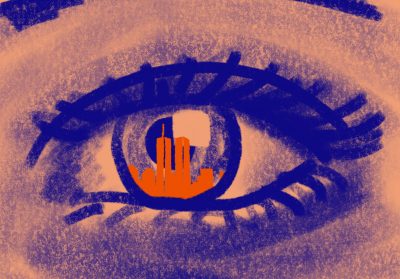Yesterday marked the 20th anniversary of the Sept. 11th, 2001 terrorist attack on the World Trade Center and the Pentagon. Along with somber reflections on how this event continues to shift the course of history and heartfelt tributes to those lost, this day also demonstrated the lack of compassion many, particularly those of a younger generation, hold towards the horrific nature of the day through a plethora of 9/11 memes and more than one invitation to a 9/11 themed party exposed on Twitter.
These memes, and parties, demonstrate the many complicated, and problematic ways Gen Z interprets the events of 9/11.

Much has been written about Gen Z’s use of humor as a coping mechanism after experiencing traumatic events. Historically, so-called gallows humor has always been utilized to cope with traumatic events. But technologies on the internet have broadened the impact range and the affected audience of tragic events.
Now, you can not only joke about the tragedies of your own life, but also have access to tragedies happening across space and time that may not have otherwise consciously touched your life.
The pandemic has provided prime space for conversations around this kind of humor, with some endorsing its use as a coping mechanism and others offended by how lightly people could treat such a serious topic.
But our generation has lived and is living through the pandemic. In the case of 9/11, how can a generation too young to fully remember 9/11, but raised in a world irrefutably shaped by the event, have a well-reasoned understanding of how to properly remember it, much less grieve it?
How can a 9/11 party possibly be considered a valid way to properly commemorate the deaths of innocent people?
The short answer is that there is no way that it can. These parties are irrefutably insensitive and demonstrate a clear lack of respect for the victims of the attack. It’s a painful, inexcusable example of the dangers of dark humor and taking it too far.
How could such an idea even come to fruition?
First, though 9/11 happened only a few decades ago, it is worth stating the extent to which many Gen Z people feel removed from the event itself. Once an event becomes part of historical memory, and removed from the immediate context, it becomes all the more difficult to directly relate to its consequences.
But while most Gen Z did not live through the event itself, members of this generation have lived through its after-effects: the heightened racism and Islamaphobia towards Muslim American communities and the human toll of seemingly endless wars in the Middle East.
The events of 9/11 have been used to justify systemic discrimination against Muslim Americans, hate crimes and costly and horrific wars. They bolstered a malignant sort of patriotism, less concerned with the victims of the attack or the wars that came from it, and more so with the optics, the image of a vengeful, strong America.
In summation, Gen Z is more familiar with the politics of 9/11 than the event itself.
Moreover, after living through the sheer grief and human loss of the pandemic, it can make sense for young people to be frustrated with the amount of coverage dedicated to this tragedy over others.
But despite Gen Z’s removal from the immediate context of 9/11, it is nonetheless no excuse for callousness or apathy towards the victims of the event. It is egregious to spend time evaluating people’s pain in order to determine whether one should feel empathy for them, and astounding to think mocking someone else’s pain will help validate another’s.
How effective can these ironic memes really be in dismantling this toxic kind of patriotism? How is this kind of cynicism serving Afghan civilians, for instance, whose lives were deeply impacted by the war justified by 9/11?
What is the calculation or balance between being righteous over how corrupt the American government is, and respecting and giving space for people still grieving over loved ones they lost in the attacks or in the wars that followed?
In the case of 9/11 theme parties in specific, it is also important to acknowledge how islamophobia informs how these parties are viewed. Hate crimes against Muslim Americans increased drastically after 9/11. Former President Donald Trump still claims to have seen Muslims celebrating 9/11 in New Jersey, despite police and eyewitness reports firmly denying the existence of any such event.
There is something especially harmful about privileged young people ironically celebrating or making fun of 9/11, while Muslim, Arab and Desi communities continue to face violence, racism and Islamaphobia against their communities.
It is important to acknowledge how the tragic 9/11 event was misused by people in power to justify devastating and costly wars, as well as utilized by racist groups to bolster their attacks on Muslim, Arab and Desi communities.
But we can acknowledge these faults while also holding space and respect for those still grieving the attacks.
When cynicism takes center stage, rather than the pain of those directly impacted by the event — both in regards to American victims of the attack, and Afghan and Iraqi people whose lives were disrupted by the wars justified by the attack — then this coping mechanism seems more like an act of performative activism than a real reckoning with the traumatic event.


















































































































